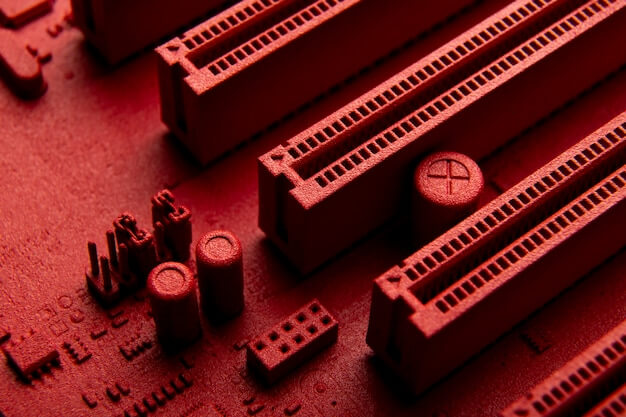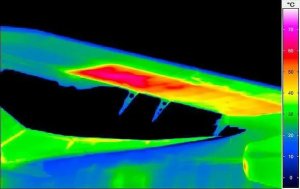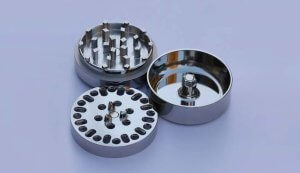Introduction to CNC Machining, Tolerances and Material Selection
CNC machining is a prevalent manufacturing process that entails the use of pre-programmed computer software to dictate the movement of factory machinery and tools. This technology enables the accomplishment of complex three-dimension cutting tasks in one set of prompts. Understanding tolerances and material selection is crucial towards precision engineering in CNC machining. Tolerance refers to the acceptable amount of variation permitted in the size of an object; with tight tolerance implying high-precision production and vice versa. Depending on specified tolerances, different materials – metals, plastics, or composites – are chosen for their suitability to withstand processes such as drilling, milling or turning.
- Tolerance: In precision engineering, tight tolerances are required to achieve high-precision parts and ensure operation accuracy within assemblies.
- Material Selection: The choice of raw material will significantly impact the final product’s performance. Factors considered include tool life, surface quality, and dimensional stability.
Implementing accurate tolerances and selecting suitable materials can help minimize errors, enhance efficiency, reduce waste, thus leading to overall cost and time savings across the entire production process. For instance, a highly tolerance-sensitive application may require precise control of mechanical movements using a sturdy alloy like steel whilst applications needing light-weight components could benefit from plastic or composite materials.
Understanding CNC Machining Tolerances
When it comes to CNC machining, understanding tolerances is crucial for achieving precise and accurate parts. Here is a step-by-step analysis of CNC machining tolerances:
1. Definition of Tolerance:
- Tolerance refers to the allowable variation in dimensions or properties of a machined part.
- It specifies the acceptable range within which the final part dimensions must fall to meet the desired specifications.
2. Importance of Tolerance:
- Tolerance plays a vital role in ensuring the functionality and fit of machined parts.
- It ensures that parts can be assembled correctly and function as intended.
- Understanding the tolerance requirements is essential for meeting design specifications and ensuring the overall quality of the final product.
3. Factors Influencing Tolerance:
- Several factors influence the tolerance requirements for CNC machining.
- The complexity of the part, the material being machined, and the intended application all play a role in determining the necessary tolerances.
- Additionally, the capabilities of the CNC machine and the specific machining processes employed also affect the achievable tolerances.
4. Balancing Precision and Cost-Effectiveness:
- It is important to strike a balance between precision and cost-effectiveness when determining tolerances.
- Tighter tolerances generally require more precise machining processes and may result in higher production costs.
- By understanding the functional requirements of the part and considering the cost implications, an optimal tolerance range can be determined.
Understanding CNC machining tolerances is crucial for achieving the desired precision and functionality of machined parts. To ensure high-quality CNC machining services with precise tolerances, you can rely on our Precision Machining Service.
CNC Machining Material Selection
The process of material selection in CNC machining is a critical step that demands careful consideration. It involves evaluating various factors such as durability, cost, and suitability for the intended purpose of the finished part. For instance, choosing a less durable material to cut costs could impact the product negatively by shortening its lifespan or compromising its performance. The key to successful material selection lies in achieving a balance between these considerations.
- Durability: Durable materials are preferred for parts subjected to high stress or wear.
- Cost: Choosing economy class materials can significantly reduce manufacturing costs, but this should never compromise the final product’s quality and performance.
- Suitability: Materials should be suited to the specific requirements of the final product – factors like weight, strength, resistance to heat, corrosion, or other environmental conditions matter too.
Materials commonly used in CNC machining include metals like aluminum and stainless steel, which offer high strength and durability. Plastics such as ABS and polycarbonate also provide excellent flexibility and versatility. Each material has unique characteristics that make it suitable for certain applications, underscoring the need for informed material selection.
Interplay between Tolerances and Material Selection
In the realm of CNC machining, understanding the interplay between tolerance levels and material properties is crucial for achieving optimal results. The physical attributes of a selected material directly influence how well it can maintain specified tolerances. For example, softer materials such as aluminium often have more allowances compared to harder ones like steel due to differences in their deformability during machining processes.
- Aluminium with its high malleability tends to deform rather than fracture under pressure, hence more room is given for tolerance.
- The rigid nature of steel makes it resistant to deformation but causes it to break if pushed beyond certain limit thus it requires tighter tolerance control.
Balancing tolerances with the chosen material type is key because fibre structure, hardness, elasticity, melting point, amongst others, all play significant roles in determining the precision and integrity of the machined parts. Therefore, precise calculation and careful selection are necessary when matching material types with their corresponding tolerances to prevent potential failures during operation.
Latest Trends and Technologies in Precision Engineering
The ever-evolving landscape of precision engineering is influenced significantly by technological advancements, particularly those impacting CNC machining tolerances and material selection. These advancements are fostering the development of high-precision, complex geometries that facilitate better performance across industries such as aerospace, automotive, medical, among others. For instance, industry 4.0 encompasses the trend towards automation and data exchange within manufacturing technologies, including cyber-physical systems, cloud computing, and IoT.
Adaptation strategies for these trends in CNC machining primarily revolve around improving machine design, training operators to handle advanced software, keeping abreast with latest materials, optimization algorithms, and capitalizing on digital twins’ potential for simulation and testing processes. Other examples include:
- AI-based Process Control: Leveraging artificial intelligence for real-time control can increase efficiency and minimize errors in CNC machining operations.
- Additive Manufacturing Intersection: Integrating Additive Manufacturing (AM) methods with traditional CNC machining delivers more flexibility in handling diverse materials and achieving intricate designs.
- Tighter Tolerances: Newer technologies enable tighter tolerances resulting in highly accurate parts which are crucial in industries like aerospace where minute deviations can lead to large discrepancies.
Other Articles You Might Enjoy
- Achieving Precision in CNC Machining: The Importance of Material Uniformity and Selection
CNC Machining and the Significance of Precision CNC machining is a manufacturing process where pre-programmed computer software dictates the movement of factory tools and machinery. This process is used to…
- Elevating Precision Standards through Chamfer in CNC Machining
1. Introduction: The Pursuit of Unparalleled Precision In the realm of CNC machining, precision is paramount. This section introduces the article by exploring the significance of precision in manufacturing and…
- Precision Prowess: Unveiling the Advantages of China CNC Machining
1. Introduction: The Role of Precision in Manufacturing Excellence In this introductory section, we delve into the critical role that precision plays in manufacturing and set the stage for an…










 Afrikaans
Afrikaans Albanian
Albanian Amharic
Amharic Arabic
Arabic Armenian
Armenian Azerbaijani
Azerbaijani Basque
Basque Belarusian
Belarusian Bengali
Bengali Bosnian
Bosnian Bulgarian
Bulgarian Catalan
Catalan Cebuano
Cebuano Chichewa
Chichewa Chinese (Simplified)
Chinese (Simplified) Chinese (Traditional)
Chinese (Traditional) Corsican
Corsican Croatian
Croatian Czech
Czech Danish
Danish Dutch
Dutch English
English Esperanto
Esperanto Estonian
Estonian Filipino
Filipino Finnish
Finnish French
French Frisian
Frisian Galician
Galician Georgian
Georgian German
German Greek
Greek Gujarati
Gujarati Haitian Creole
Haitian Creole Hausa
Hausa Hawaiian
Hawaiian Hebrew
Hebrew Hindi
Hindi Hmong
Hmong Hungarian
Hungarian Icelandic
Icelandic Igbo
Igbo Indonesian
Indonesian Irish
Irish Italian
Italian Japanese
Japanese Javanese
Javanese Kannada
Kannada Kazakh
Kazakh Khmer
Khmer Korean
Korean Kurdish (Kurmanji)
Kurdish (Kurmanji) Kyrgyz
Kyrgyz Lao
Lao Latin
Latin Latvian
Latvian Lithuanian
Lithuanian Luxembourgish
Luxembourgish Macedonian
Macedonian Malagasy
Malagasy Malay
Malay Malayalam
Malayalam Maltese
Maltese Maori
Maori Marathi
Marathi Mongolian
Mongolian Myanmar (Burmese)
Myanmar (Burmese) Nepali
Nepali Norwegian
Norwegian Pashto
Pashto Persian
Persian Polish
Polish Portuguese
Portuguese Punjabi
Punjabi Romanian
Romanian Russian
Russian Samoan
Samoan Scottish Gaelic
Scottish Gaelic Serbian
Serbian Sesotho
Sesotho Shona
Shona Sindhi
Sindhi Sinhala
Sinhala Slovak
Slovak Slovenian
Slovenian Somali
Somali Spanish
Spanish Sundanese
Sundanese Swahili
Swahili Swedish
Swedish Tajik
Tajik Tamil
Tamil Telugu
Telugu Thai
Thai Turkish
Turkish Ukrainian
Ukrainian Urdu
Urdu Uzbek
Uzbek Vietnamese
Vietnamese Welsh
Welsh Xhosa
Xhosa Yiddish
Yiddish Yoruba
Yoruba Zulu
Zulu